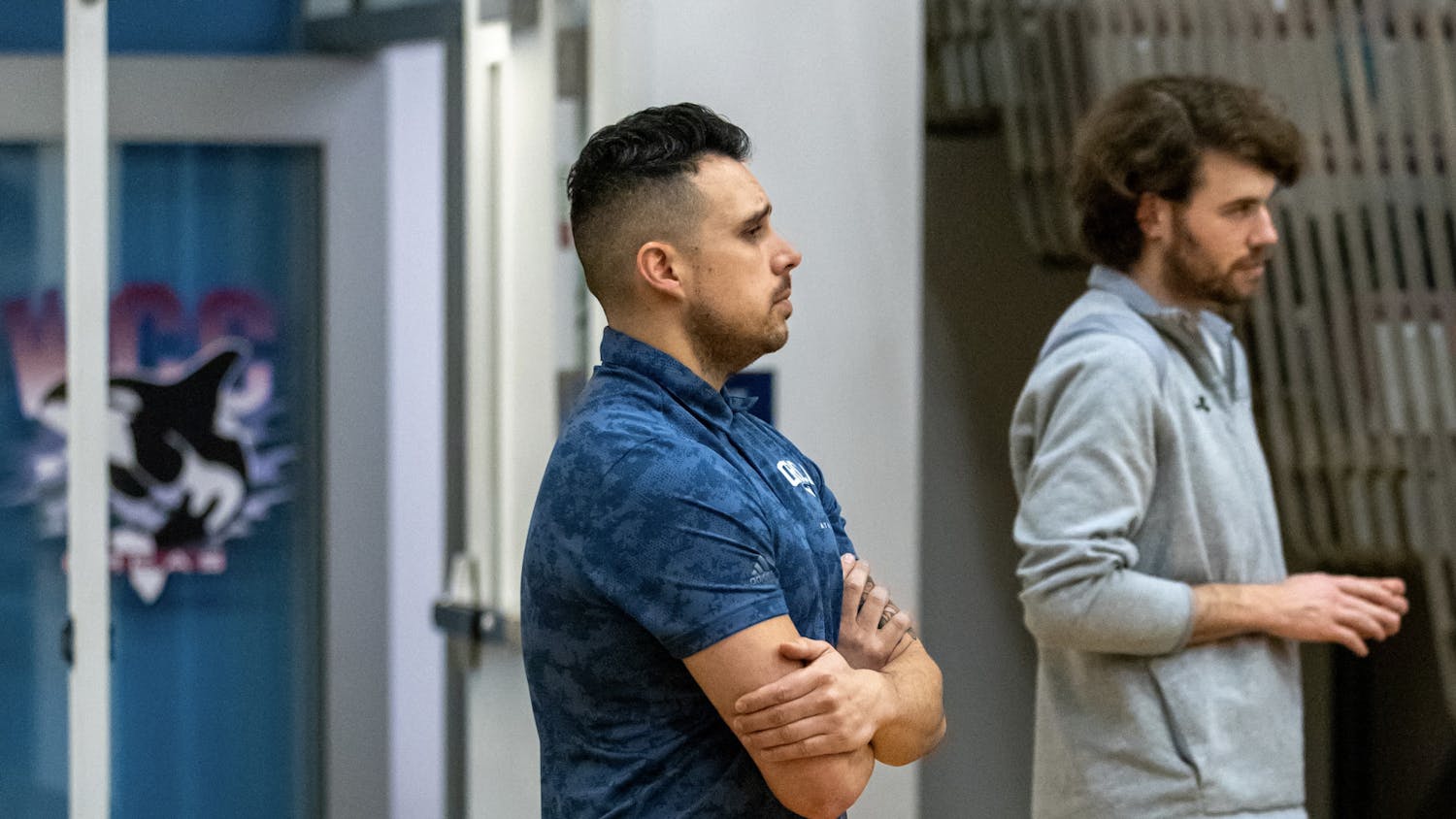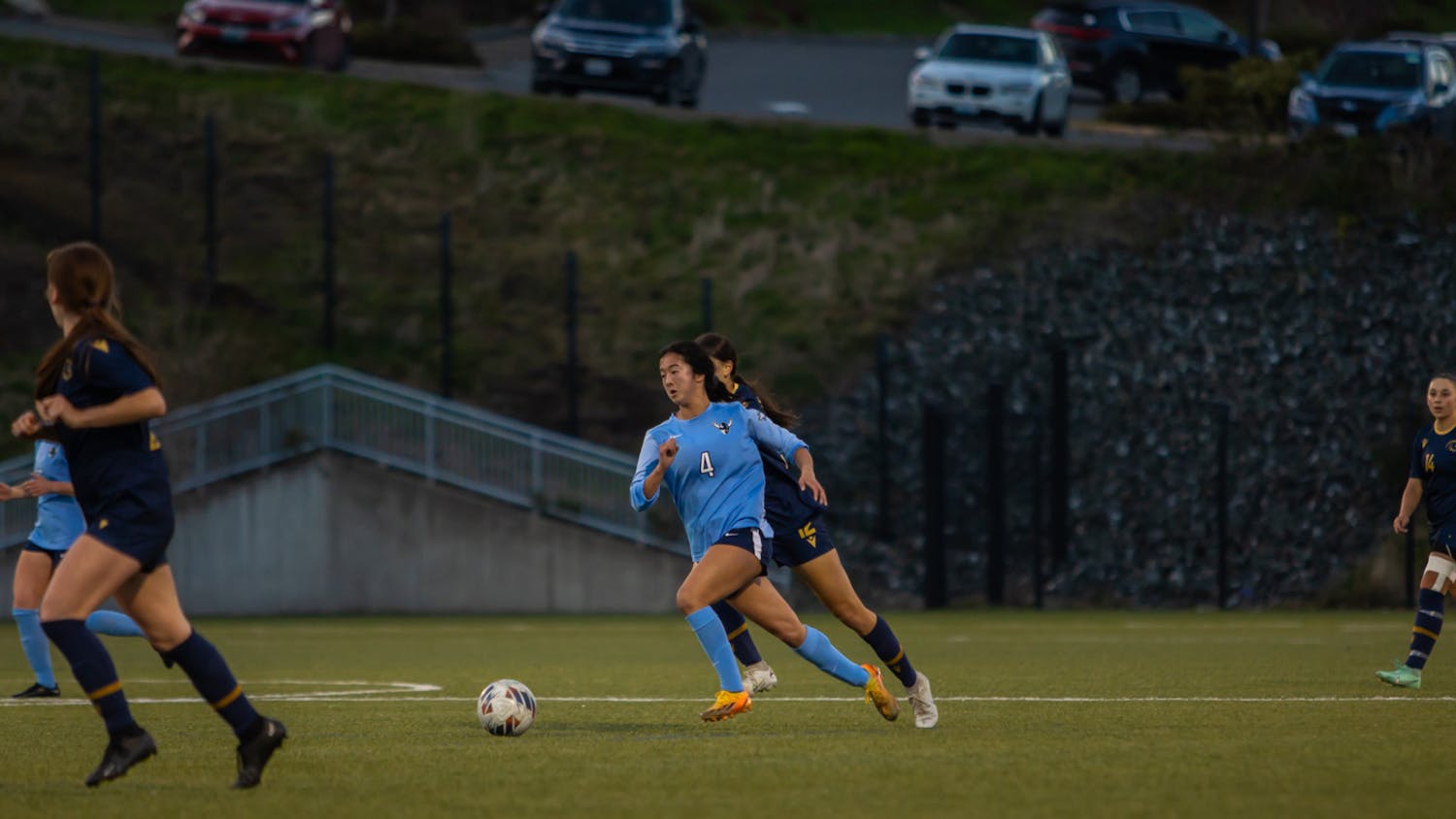Chronicling the last days of the Western football program

By Jordan Stone
A blindside hit in football is when you are tackled, and you don’t see it coming.
A blindside hit for Western Washington University football was when their program was canceled in 2008.
Just take it from their head coach during that final season, Robin Ross.
“When I was given the word, it was a blindside shot,” Ross said. “The thing about it was that no one had any indication that that was going to be the last year of the program. Everyone thought we were getting better.”
The Vikings were coming off a 6-5 season, where they won the Dixie Rotary Bowl — one of many postseason bowl games for teams with winning records — in memorable fashion.
Everything was trending in the right direction, Ross said, and the team was very confident in what they could have done the following seasons.
“Every player on that team felt like we were going to be in the playoffs and have a chance to win a national championship,” Ross said. “That is how close we felt we were. We felt the bowl game was just one step closer to get there.”
Ross wasn’t the only one who felt that way. Pat McCann, who now coaches at Eastern Washington University, but played at Western from 2005-2008, felt that the team was getting better too.
“I think basketball winning a national championship shortly after is a great example of it,” McCann said. “I think that you absolutely could have won a national championship at Western Washington.”
However, success on the field isn’t the only thing that determines the strength of a program.
“We knew there was budget problems because of the recession and those type of things,” Ross said. “You never thought it would come to that.”
Even players could see that the program was struggling financially. Nick Warren, who was a linebacker for Western from 2003-2007, sensed there were issues.
“Football is expensive to run, and there was a recession going on,” Warren said. “We actually did a lot of fundraising ourselves as players. Not to mention the team wasn’t very well supported at games.”
Western officials declined to comment on the decision to cancel the program when asked by The Western Front.
According to an article written by the Associated Press shortly after the program was canceled, Lynda Goodrich, Western’s Athletic Director at the time, said Western’s athletic programs were in a financial crisis. Cutting football was a move to ensure the continued success of the remaining programs.
One contribution to the hardship the football team faced was the lack of west coast opponents, which led to increased travel costs. After Western’s football program was cut, there were only four Division II football programs west of Colorado.
Since football was cut in 2008, no other sports have been dropped, and Western has enjoyed an extended period of success.
They have won national titles for men’s basketball in 2012, women’s soccer in 2016 and women’s rowing from 2005-2011 and again in 2017. Western’s men and women’s soccer, men and women’s basketball, softball and volleyball have combined for 20 regular-season Great Northwest Athletic Conference titles, 35 national tournament appearances and 2 national runner up titles since the football program was cut.
That success doesn’t take out the sting that some alumni and fans of the football program still feel.
“I was bummed because on one hand you put in so much work and effort into something that no longer exists,” Warren said. “There’s a lot of time and effort that goes into it which is never seen by staff or students.”
Tieba Bropleh, who was a linebacker for the Vikings from 2003-2007, has mixed feelings about his time at Western.
“I’m happy for the basketball team. I had buddies that played basketball there,” Bropleh said. “I actually do not financially support Western and have asked to be removed from those lists because without football I don’t really have that much of an interest.”
Ross, who is now coaching in the Canadian Football League with the Hamilton Tiger-Cats, still hears from fans in the Bellingham community that they want football to return.
“I still get the same questions,” Ross said. “’Coach, are they going to bring it back? Coach, they never should have dropped it. Coach, we miss football.’”
Ross acknowledged that COVID-19 has made it tough on football programs everywhere, but he still hopes for a day when football can return to Western. McCann, who is now the wide receivers coach and passing game coordinator at Eastern Washington, feels the same way.
“I absolutely love Western. I love Bellingham. I love everything about it,” McCann said. “I think there is a place for [football]. I think it can be successful there. I would love to see it.”
Bropleh believed that having football players on campus was good for the culture of the school.
“One of the tragedies to me about the cutting of the football program has to do with diversity,” Bropleh said. “Just having a football program added a certain level of diversity that I don’t think is quite there.”
At one time, football was a big draw in Bellingham, Ross said.
“I remember back in the ‘90s, when I was a defensive coordinator, we would pack out that stadium,” Ross said. “The biggest university event was the Battle in Seattle, playing Central every year (at what is now CenturyLink Field).
“That was huge. We did at least 10, 13,000 [fans] at those games. I think the biggest crowd they had there was 17, 18,000. And they would do an alumni event before. They said it was the largest alumni event for Western Washington that they ever would have.”
Aside from the longing for football, Ross was happy that he could help his players enjoy their time in college.
“It was a great experience. I think all the players benefited from that,” Ross said. “That is what you want, as a coach. You want to make sure your team has a great experience, college experience with football. And I think they got that.”
One of those experiences was the chance to play in the Dixie Rotary Bowl in St. George, Utah, against the Colorado School of Mines, a game which they won. At the time, they didn’t know it would be the last game that a Western Washington football team would ever play.
“We were definitely proud of the fact that we went out with a win,” McCann said. “We were proud of the fact that the last game played by Western Washington football was a win in that bowl game.”
There was a moment during that game that has stuck with McCann ever since.
“At the end of the third quarter, we were winning and the ‘Cha Cha Slide’ came on,” McCann said. “So during the game, after the third quarter, we were dancing on the sidelines to the ‘Cha Cha Slide.’ After the game, after we won, somehow we got it going again. The whole team took part in it.
“What is it? Twelve years later? When I hear the ‘Cha Cha Slide’ come on, it strikes up feelings for me on that.”
Ross remembered that dance fondly too.
“At the end of the bowl game they present the trophy,” Ross said. “The players started passing it around, and then they started getting a little dance going. It was really great.
“The players were on top of the world.”





